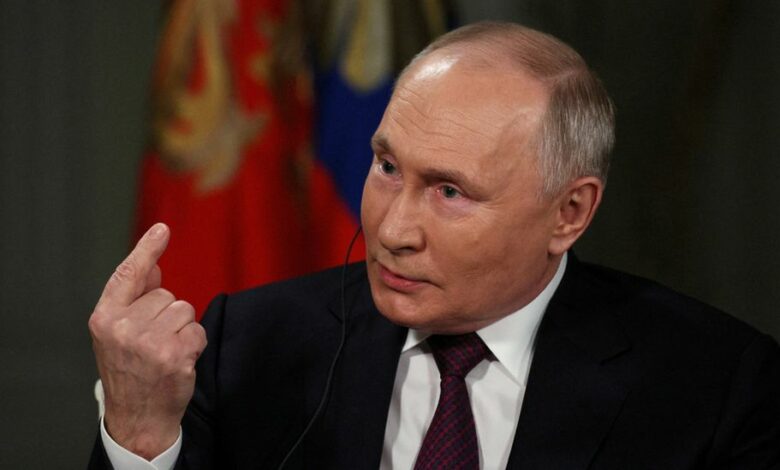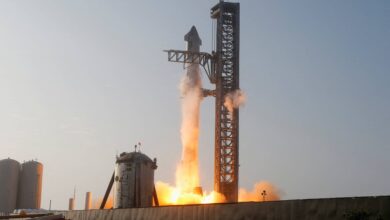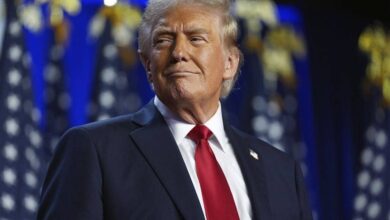
Russian President Vladimir Putin has issued a stark warning on the use of nuclear weapons in response to conventional attacks, presenting significant updates to the country’s nuclear doctrine.
During a televised meeting of Russia’s Security Council on Wednesday, Putin stated the definition of any attack on Russia coming from a non-nuclear state that a nuclear power supports the attack constitutes a “joint attack on the Russian Federation.” He added that nuclear weapons would be used if a conventional attack threatened “critical damage to our sovereignty,” which is a very open-ended and vague statement.
Kremlin spokesperson Dmitry Peskov labeled the statement an open warning to Western countries, elaborating that it was meant to expose them to the aftermath of events should there be any interference with Russia. “This is a signal that warns these countries about the repercussions if they participate in an attack on our country by various means,” said Peskov.
In the wake of Putin’s announcement, the European Union lambasted the move as “reckless and irresponsible.” EU foreign policy spokesperson Peter Stano said, “Not for the first time, Putin is gambling with his nuclear arsenal. We strongly reject these threats.”
It is important to consider the context in which this development has taken place: Putin has ultimate authority over the Russian nuclear arsenal, and any changes in doctrine would have to be approved by him. The new draft doctrine seems to lower the threshold for the use of nuclear weapons, at least, with discussions among Ukraine’s Western allies heating up about possibly providing longer-range weapons to Kyiv. At the same time, a surprise incursion of Ukrainian forces into Russia’s Kursk region took place.
Although he did not refer to Ukraine, Putin suggested the need to revise the nuclear doctrine due to fast and continuous changes in the world that create new challenges for Russia. Meanwhile, Russia has failed to win a decisive victory in Ukraine since the onset of the full-scale invasion two-and-a-half years ago and is still trying to deter Western support for Kyiv.
Throughout the war, he has resorted to implicit threats of nuclear action and even pulled out of the New START treaty with the US, which caps the number of nuclear warheads that both countries can deploy. Ukrainian President Volodymyr Zelenskyy called for Western allies to ignore such threats; his chief of staff, Andriy Yermak, called Putin’s words simply blackmail.
“Russia no longer has any instruments to intimidate the world apart from nuclear blackmail,”
Yermak said but underlined that this, too, would not work.
Under the current nuclear doctrine, issued by decree in 2020, nuclear weapons can be deployed either in the case of a nuclear attack or in cases when a conventional attack may threaten the very existence of the state. The Russian hardliners have supported a more severe doctrine because the current one is too blurred and reflects an unwillingness to use nuclear forces.
According to the president, the new doctrine clearly articulates when nuclear arms could be used, and specifically in what situation: in case of a large-scale air-space attack. He added that if there were sufficient indications that such a large-scale aerial attack crossed over into Russian territory, it would consider nuclear options.
Under the current doctrine, a nuclear strike is permissible if there is reliable information about the beginning of a ballistic missile attack against Russia and its allies. Ukraine, attacked by Moscow, repeatedly hit targets inside the territory of Russia with missiles and drones.
Some analysts view Putin’s hyper-specific nuclear threats as part of a broader effort to resuscitate the Kremlin’s yearslong nuclear saber-rattling and construct a new wave of concern among Western policymakers, especially at an undeniably critical juncture for discussion about Ukraine’s military capabilities. “It’s never good when a major nuclear power loosens the conditions for nuclear use in its declaratory policy,” said Samuel Charap, a senior political scientist at RAND.
In addition, Putin said the revised doctrine would extend Russia’s nuclear umbrella to include neighboring Belarus, whose president, Alexander Lukashenko, has long been a staunch Putin ally, granting permission for Moscow to use Belarusian territory to mass its troops before moving them into Ukraine and allowing the deployment of tactical nuclear weapons there.
Notably, Russia, together with the United States, is the world’s largest nuclear power and such reports only increase the gravity of the situation since roughly 88 percent of the globe’s nuclear warheads are controlled by them.



